Yolo County Community Broadband Equity Conversation
During our December 2020 policy discussion our community crafted this definition of broadband equity:
Equal access to broadband internet at an affordable rate for all members of the community to be able to meet their needs for work, school, and entertainment, regardless of demographics, geography, or socioeconomic status.
We started this journey in August of 2020 and continued bimonthly live discussion sessions with the goal of generating a consensus for action. Each session began with brief presentations by topic experts leading to a conversation with the community about what to do about what we discussed. All sessions are listed below with links to the video for each. With Billions of dollars of stimulus funding for implementation of Broadband infrastructure now available (September 2022), we defer the conversation to local, regional and national public entities as well as multi-regional non-profit organizations to conclude the conversation. Please explore the links below.
To join ongoing broadband conversations or benefit from the resources they are generating, here are a few places to explore:
Per their website, "The California Broadband Council (CBC) was established by SB 1462 (Chapter 338, Statutes of 2010) to promote broadband deployment in unserved and underserved areas of the state as defined by the Public Utilities Commission, and broadband adoption throughout the state.
The Council identifies state resources, encourages public and private partnerships, and recommends strategic policy to establish effective structures for providing world class high speed Internet access throughout California. The 12-member CBC is run by the California Department of Technology’s Office of Broadband and Digital Literacy which provides support by managing the statewide ecosystem of individuals and organizations dedicated to closing the digital divide."
- Homepage | Broadband for All (ca.gov) – subscribe to updates to stay in the loop about events to participate in.
- Middle Mile Broadband
- Last Mile Broadband
- State Resources
- Broadband Equity, Access, and Deployment (BEAD) Program | BroadbandUSA (doc.gov) – FAQs about BEAD as well as key information
- Digital Equity Programs | BroadbandUSA (doc.gov) – FAQs about Digital Equity as well as key information
- Apply for ACP Today - Internet for All Now – The Affordable Connectivity Program (ACP) is a federally funded initiative that offers a $30 monthly discount on Home Internet (up to $75 per month for households on qualifying Tribal Lands) and a one-time discount of up to $100 for a computer or a tablet.
Valley Vision
-
Promoting Digital Equity
- Connected Capital Area Broadband Consortium
- Preferred Broadband Scenarios
The Capital Region Digital Inclusion Portal offers local and regional digital inclusion resources and information.
ITUP (Insure the Uninsured Project)
-
Broadband policy toolkit
-
Broadband policy discussion / work group
Session 1 (Aug 2020): Background
Collaborating with Valley Vision, the Woodland Technology Alliance began an effort to promote broadband access and capacity in Yolo County in August 2020. The recording of the introductory conversation is here and the summary is here. During the first virtual meeting, we laid a foundation about the status of broadband in Yolo County. Notably:
- broadband availability to Yolo County residents is rated at 96%
- installation of broadband services varies highly, from as few as 40% of households in one part of Yolo County (north) having broadband in their home to over 80% of households having broadband in another (central), suggesting an affordability barrier
- household broadband speed can be inadequate for remote access to work and school
- the County of Yolo has explored new models to deploy broadband
- the Woodland Joint Unified School District has made hot spots available to all students on free and reduced lunch
- two regional coalitions support expanding access to broadband: Connected Capital Area Broadband Consortium (CCABC) and Sacramento Coalition for Digital Inclusion (SCDI)
- webinar participants indicated that:
- 4 of 5 paid more than $50 monthly for service that often transmitted well below advertised speed
- follow up meetings should be bi-monthly to move the community conversation toward 100% access.
For more details, please either watch the recording or read the summary.
Session 2 (Oct 2020): Speed
Watch the video recording:
Our second session in the conversation focused on broadband speed. After introductions by Dr. Larry Ozeran (WTA) and David Espinoza (Valley Vision), David presented a tutorial about the California State Broadband map. The tool allows you to assess the broadband landscape in California, locally, regionally or statewide. You can use the layers of the mapping tool (Broadband Adoption, Broadband Deployment, Broadband Grants, CalSPEED & Public Feedback, Community Anchor Institutions & Political Boundaries) in different combinations to create very personalized maps to meet your specific needs. David demonstrated how to select criteria in the different tool layers to easily visualize the distribution of broadband adoption with a focus on Yolo County.
Question 1 asked how frequently the map was updated by the state: annually, but some data, like the census and geography of legislative districts, change less often, explaining why some data was last updated in 2011.
Unserved was defined as having no service in the area. It might include areas that have internet service, but the speed of that service is too slow to meet the minimum broadband definition (1 Mbps upload, 6 Mbps download). David discussed the CASF grant funds and how to find areas where the funds were used.
Question 2 asked how we get outage data made public. David did not have a definitive answer but postulated that the Internet Service Providers (ISPs) are allowed to keep this data confidential as their proprietary property. We will bring this question back for the policy conversation in December.
David demonstrated how to use the map to find specific ISPs. It is possible to identify which ISPs serve which specific addresses and at what speed. David expressed his gratitude to the Public Utilities Commission (PUC) Mapping Division and the CSU Chico Geographical Information Center for making this tool available to the public.
Question 3 was about the lack of a chromebook version of the CalSPEED application. It emphasized the question of equity we are seeking in this process. It will also return during our policy discussion in December.
Larry then shared the change in the definition of broadband over time. The most recent Federal Communications Commission (FCC) standard defined in 2015 being 3 Mbps upload, 25 Mbps download. He then assisted the audience estimate how much broadband speed they need to meet their local need at home and for business.
David then demonstrated how to use CalSPEED to determine the broadband speed each member of the audience actually had and how to report that speed to the PUC. Participants were ecouraged to share their speed and the speed they had been promised by their ISP with WTA.
During the final segment of the webinar, the audience was asked to share their stories. We heard about:
- 300 Mbps ISP promised speed measured at far less having no impact on video, but leading to some audio latency,
- 25 Mbps being the fastest an ISP would offer because the cost to increase the number of line pairs (to increase maximum speed) is too high,
- lack of capacity in the community forces some families to go without real time video during school in order not to get kicked off of a cell tower connection, and
- lack of high speed broadband on one side of Main Street in Woodland even though it is on the other side.
Question 4 was about how to update inaccurate information in the CalSPEED map. David demonstrated how.
We closed by encouraging the participants to think about how they define "broadband equity", what topics to discuss in 2021, and whether the time for the series needed to change to enable more members of the community to participate.
Session 3 (Dec 2020): Policy
This session focused on federal, state, county, and city policy that impacts the equitable availability of broadband to all members of the Yolo County community.
Watch the video recording:
Agenda
- Introductions
- How you (the participants) define equity
- Current Federal, State, County and City policy
- Current activity seeking to change broadband policy
- Discussion about what needs to change to achieve equity
- Schedule for 2021 - topics, dates, time
Panelists
We were pleased to have representatives of:- California Congressional District 3 - Aaron Latta (staff for Congressman Garamendi),
- California Assembly District 4 - Samantha Samuelson (staff for Assembly Member Aguiar-Curry),
- Yolo County - Tara Thronson (staff for Supervisor Don Saylor), and
- City of Woodland - Tom Stallard (Mayor pro tem).
 Aaron Latta | Aaron Latta is a District Representative and Constituent Services Specialist for Congressman John Garamendi based out of the Congressman’s Davis District Office. He is a California native and a recent graduate from University of California Davis with a degree in Political Science. Currently, Aaron is responsible for infrastructure, small business, environmental, health and tax issues within the district for Congressman Garamendi. |
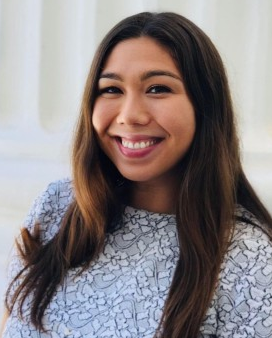 Samantha Samuelsen |
Samantha Samuelsen, Legislative-Aide for Assemblymember Aguiar-Curry is a graduate of the University of California, Davis with degrees in both Political Science and Gender & Women’s Studies. Presently, her work focuses on the issue areas of Communications and Conveyance, Utilities and Energy, and Natural Resources. Samantha grew up in San Carlos, California and currently serves as Communications Director of the Asian Pacific Islander Capitol Association (APICA), a non-profit dedicated to uplifting the API community. Click here for AB 14 Fact Sheet to promote Internet for All. |
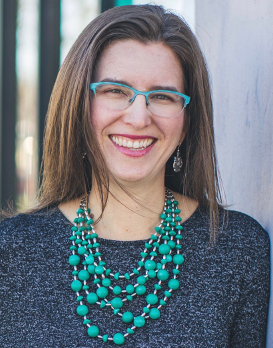 Tara Thronson | Tara Thronson serves as Deputy to Supervisor Don Saylor in Yolo County District 2 and as a member of the Yolo County Broadband Task Force. Tara was formerly a Project Leader at Valley Vision, and helped cultivate and manage the Connected Capital Area Broadband Consortium. Through her current role in Yolo County she continues to serve as a “broadband evangelist,” spreading the word about the positive economic and social equity impacts that will result from closing the Digital Divide. |
 Tom Stallard | Tom Stallard is currently Mayor pro tem of the City of Woodland and has served on the city council for 10 years. He is a Director of the Sacramento Area Council of Governments and Board Member of the Yolo Solano Air Quality Management District, Woodland Davis Clean Water Agency, and Valley Clean Energy, among others. |
Session 4 (Feb 2021): Metrics of Equity
This session focused on how we measure equity in broadband. What measures tell us how close we are now, what progress are we making, and how we know when we achieve it for all members of the Yolo County community?
Watch the video recording:
Agenda
- Introductions
- Why discuss metrics
- Metrics of Equity
- National context
- Community discussion about equity - what measures should we use? what barriers might limit access to the data?
Panelists
We were pleased to have Sabrina Roach, Manager of Strategic Engagement with the National Digital Inclusion Alliance and John B. Horrigan, PhD, Senior Fellow at the Technology Policy Institute.
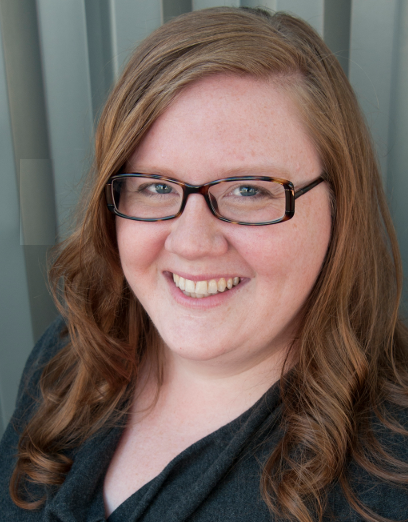 Sabrina Roach | Sabrina Roach brings more than two decades of organizing for a media and technology ecosystem that serves all of us. She likes to work collaboratively and focus on peer and emerging leader development. She’s spent seven years in a mix of regional and national board roles with the Alliance for Community Media (Public Access, Education, and Government TV), and seven years directing public media and tech advocacy at Brown Paper Tickets where she helped new Low Power FM radio stations to get on the air and become relevant in their neighborhoods. |
 John B. Horrigan, PhD | John B. Horrigan, PhD is Senior Fellow at the Technology Policy Institute, with a focus on technology adoption and digital inclusion. Additionally, he has served as an Associate Director for Research at the Pew Research Center, where he focused on libraries and their impact on communities. During the Obama Administration, Horrigan was part of the leadership team at the Federal Communications Commission for the development of the National Broadband Plan. |
Session 4 (Apr 2021): Broadband Equity in Education
In this session we discussed how our local systems of education have been impacted by the lack of equity in delivery of broadband and steps they are taking to assist students have their needs met.
Watch the video recording:
Agenda
- Introductions
- The state of broadband usage in education pre-Covid
- Impacts of Covid on broadband needs in education
- Challenges in ensuring every student has access to adequate broadband
- Community discussion
Panelists
We were pleased to be joined by Garth Lewis, Superintendent of Schools for Yolo County, Carl Fahle, Director of Information Technology for the Yolo County Office of Education, Tina Burkhart, Director of Technology Services for the Woodland Joint Unified School District, and Devin Crosby, Chief Technology Officer for the Yuba Community College District.
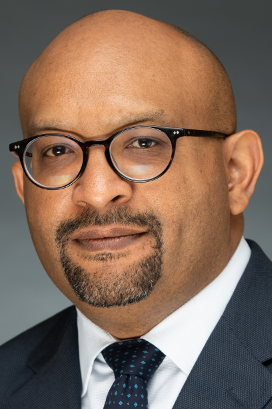 Garth Lewis | Garth Lewis serves as the Superintendent of Schools for Yolo County. He was elected to this position in 2018. Over the course of his two-decade career in K-12 education, Superintendent Lewis has served as a para-educator, teacher, site and district administrator, and assistant superintendent. His collaborative work supports each of the five Yolo school districts and other key agencies that serve youth and families throughout Yolo County. He believes access to a high-quality public education is a significant factor in improving life outcomes for all children. |
 Carl Fahle | Carl Fahle is the Director of Information Technology for the Yolo County Office of Education. He is an experienced technology and educational services executive, software developer, and instructional leader with a background in primary/secondary education. He is skilled in complex IT systems management and instructional technology integration. Prior to working in Yolo County, he previously worked in IT director roles for the South San Francisco and San Juan Unified school districts. |
| ... | Tina Burkhart is Director of Technology Services for the Woodland Joint Unified School District During the past 20+ years, Tina has worked with Vallejo, Davis, and Woodland school districts to implement technology services to support our children as they master the skills needed for a life full of possibility and change. |
Session 5 (Jun 2021): Broadband Equity in Rural Communities and Agriculture
In this session we discussed the impacts and opportunities for broadband equity in rural communities and agriculture.
Watch the video recording:
Agenda
- Introductions
- The state of broadband in rural communities
- The opportunities that become available with equitable access to broadband
- Community discussion
Panelists
We were pleased to be joined by Trish Kelly of Valley Vision and Gabriel Youtsey with the University of California, Division of Agriculture and Natural Resources.
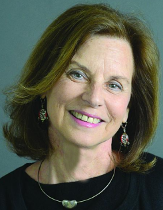 Trish Kelly | Trish Kelly is Managing Director at Valley Vision, a nonprofit civic leadership organization serving the Capital Region and Northern California. Trish contributes to statewide leadership efforts to advance Digital Divide solutions, including serving as a member of the California Broadband Council’s Strategic Broadband Corridors Advisory Task Force and Co-Lead for the Broadband for All Work Group for the California Economic Summit. Trish serves on several advisory bodies, including the AgStart incubator – an agtech accelerator in Woodland, and the Greater Sacramento Food and Ag Innovation Council; and is Co-Chair the Sac Metro Chamber’s Food and Ag Committee, with priorities being broadband deployment and workforce pipelines to strengthen the region’s food and ag economy through work with state and federal agencies and congressional delegation. |
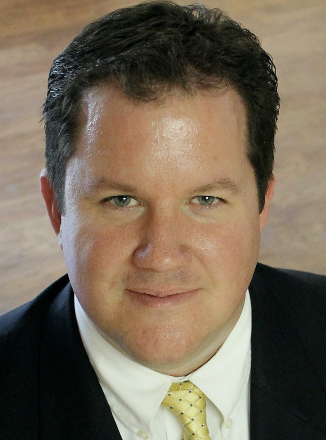 Gabriel Youtsey | Gabe Youtsey is the Chief Innovation Officer at University of California Agriculture and Natural Resources, where is works on the commercialization of novel food and agriculture technologies to address pressing industry, community and global challenges. His work encompasses diverse areas of technology such artificial intelligence and robotic automation in agriculture, to precision nutrition and smart processing in food production. His passion is connecting diverse industry, academic and community stakeholders across food, agriculture and technology sectors and driving meaningful win-win projects forward. |
Session 6 (Sep 2021): Lessons Learned about Broadband Equity
In this session we heard about lessons learned in several communities where efforts have been made to promote broadband equity. The conversation generated an action item: create a list of actions to take to promote equitable access to broadband internet. To participate in the discussion of this issue, please join our community forum. We welcome your contributions to the checklist conversation, including citing any existing checklist from which we can borrow steps.
Watch the video recording:
Agenda
- Introductions
- Presentations
- Community discussion
Panelists
We were joined by Jorge Pacheco Jr., Digital Equity Research & Advocacy Specialist with Community Health Partnership, and Jory Wolf, VP Digital Innovation with Magellan Advisors. Esmeralda Mandujano, MPH, Community Health Program Manager with the California AgrAbility Program had to withdraw for an urgent issue, but she sent information that was presented on her behalf.
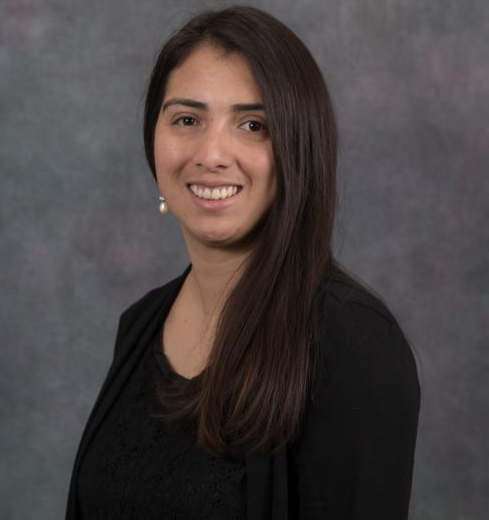 Esmeralda Mandujano | Esmeralda Mandujano has lived in Knights Landing for over 15 years and has personally experienced the challenges of the digital gap. Her family planting tomatoes, harvesting sunflowers, and promoting agricultural health and safety drives her goal to encourage and support farmers and farmworkers in taking care of their mental and physical health; many supporting health, education, and community resources have moved online. Esmeralda earned a Bachelor's degree in Psychology from UC Davis and a Master’s in Public Health from the UC Davis School of Medicine. |
 Jorge Pacheco, Jr. | Jorge has been an elementary and middle school Native Studies and Spanish teacher in the Bay Area since graduating from UC Berkeley in 2013 and is now the Digital Equity Specialist with Community Health Partnership with the objective of closing the digital divide for Santa Clara County. Jorge is also the President for both the California Latino School Boards Association and the Oak Grove School District Board of Education. |
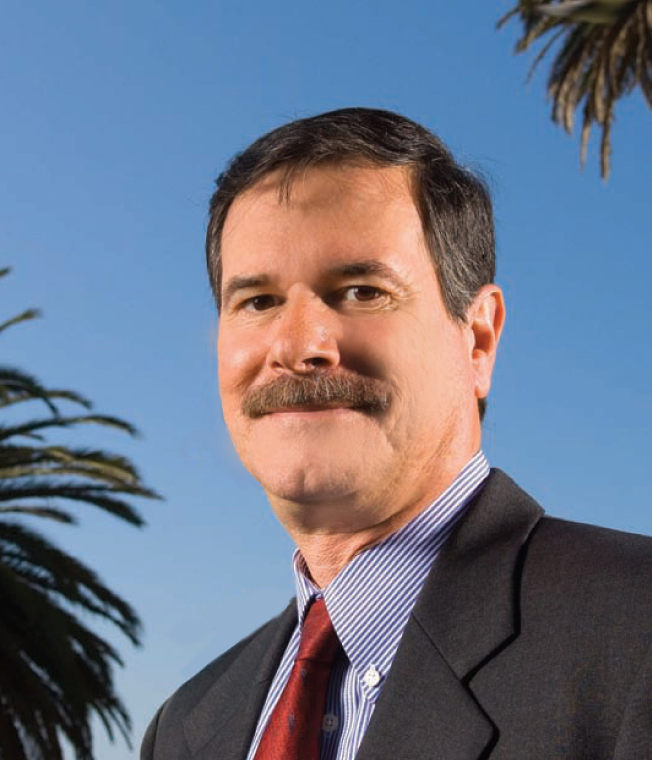 Jory Wolf | Jory Wolf has over 35 years of experience in Information Technology, including broadband, FTTH and Smart City initiatives. Jory and his teams have received over 50 awards for information technology projects during his career and in 2012 he received the CIO Lifetime Achievement Award from the Los Angeles Business Journal. Since joining Magellan Advisors in July 2016, Jory has led teams that have worked on 60+ government projects in broadband master planning, wireless strategic planning, 5G small cell policies, dig once policies, smart city, design engineering and construction management. |
Session 7 (Oct 2021): Broadband Speed and Quality of Service
In this session we discussed how to measure your broadband speed and the factors that impact quality of service, some related to the Internet Service Provider (ISP) and some related to factors like usage at different times of the day. We touched on the upcoming availability of State and Federal funds to promote broadband equity and reiterated that we have created an online forum for community discussion between these video sessions. To participate in the online discussion, please join our community forum. We welcome your contributions.
Watch the video recording:
Session 8 (Dec 2021): Broadband Policies
In this session we discussed the Federal and State funding that will become available and the policies impacting broadband availability in our communities. We heard from Congressman Garamendi and his staff on the availability of new broadband funding from the Federal Government. [details here] We also heard from Assemblymember Aguiar-Curry's office about her bill, signed into law by Governor Newsom, that will provide funding to expand broadband access in California.
Watch the video recording:
Agenda
- Introductions
- Recent Federal and State Broadband Legislation (with a focus on funding)
- Local planning
- Community Discussion
- Schedule for 2022 - topics, dates, time
Panelists
We were pleased to have representatives of:- California Congressional District 3 - Congressman John Garamendi and Aaron Latta (staff)
- California Assembly District 4 - Rita Durgin (staff for Assembly Member Aguiar-Curry),
- Yolo County - Tara Thronson (staff for Supervisor Don Saylor), and
- City of Woodland - Tom Stallard (Mayor pro tem)
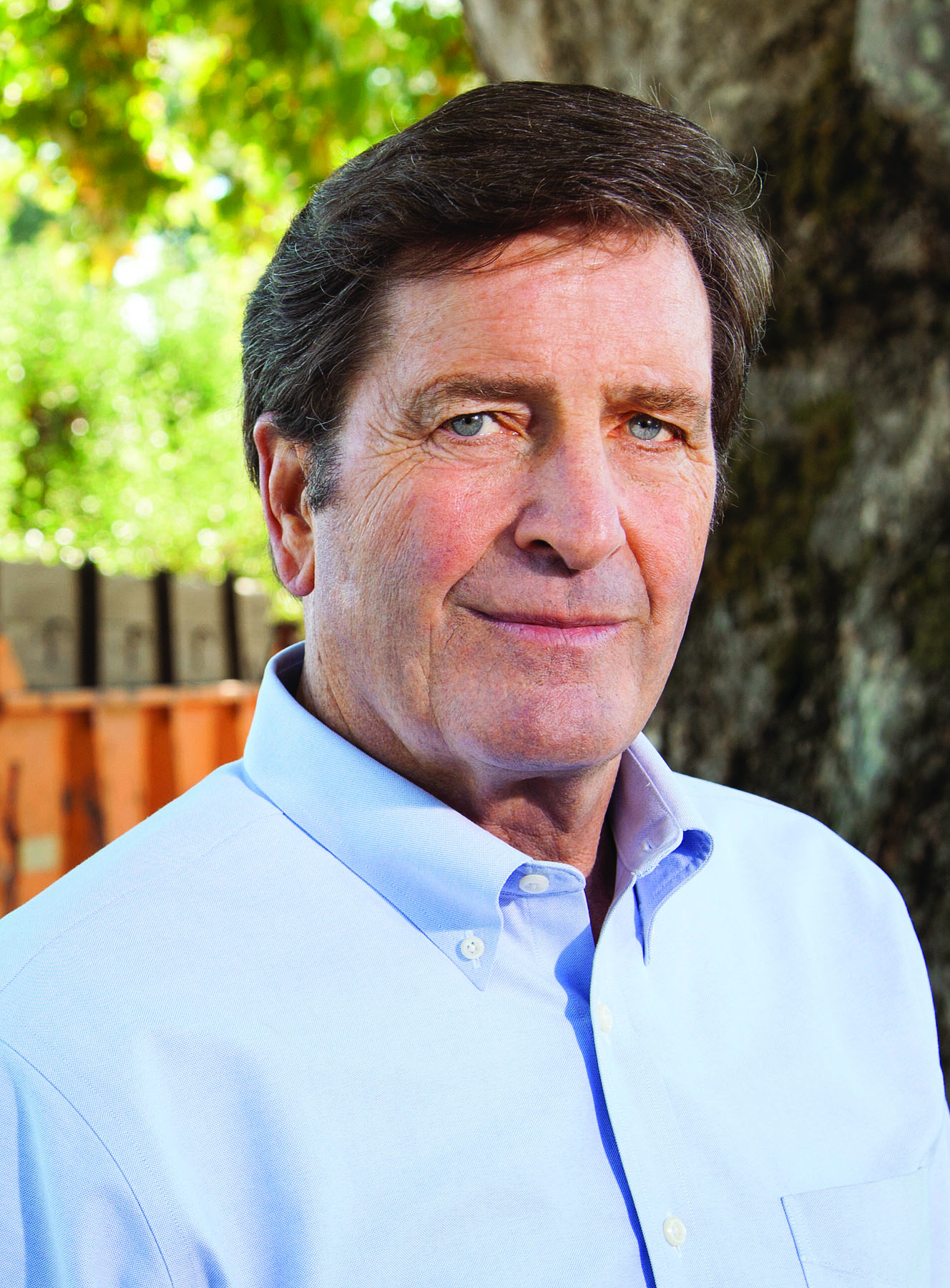 Congressman John Garamendi | Congressman John Garamendi serves Yolo County residents and all of his constituents on the House Armed Services, and Transportation & Infrastructure Committees. He is a life-long rancher with vast experience in public service. Among other accomplishments, as a California State Legislator, he authored the first ever clean energy tax credit and started high school summer science and arts programs. In Congress, he has advocated for Infrastructure investments, rural broadband development, western water storage a “Make It In America” Jobs Agenda. He and his wife Patti began their careers in public service as Peace Corps volunteers in Ethiopia, helping teach children and improve sanitation. |
 Aaron Latta | Aaron Latta is a District Representative and Constituent Services Specialist for Congressman John Garamendi based out of the Congressman’s Davis District Office. He is a California native and a recent graduate from University of California Davis with a degree in Political Science. Currently, Aaron is responsible for infrastructure, small business, environmental, health and tax issues within the district for Congressman Garamendi. |
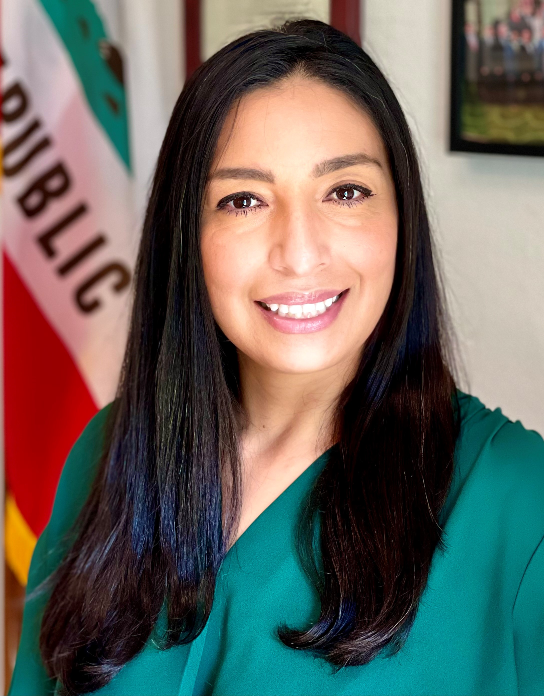 Rita Durgin | Rita Durgin has been a field representative for Assemblywoman Cecilia Aguiar-Curry for 3 years working out of the Davis district office. Rita worked as a Legislative Aide for Assemblymember Robert Rivas on Housing, Environmental Justice, and Human Services. Before the Assembly, Rita spent 8 years with the Mexican American Legal Defense and Educational Fund before graduating from UC Davis. Originally from Yolo County, Rita and her family have lived in Davis for most of their lives. |
 Tara Thronson | Tara Thronson serves as Deputy to Supervisor Don Saylor in Yolo County District 2 and as a member of the Yolo County Broadband Task Force. Tara was formerly a Project Leader at Valley Vision, and helped cultivate and manage the Connected Capital Area Broadband Consortium. Through her current role in Yolo County she continues to serve as a “broadband evangelist,” spreading the word about the positive economic and social equity impacts that will result from closing the Digital Divide. |
 Tom Stallard | Tom Stallard is currently Mayor pro tem of the City of Woodland and has served on the city council for 10 years. He is a Director of the Sacramento Area Council of Governments and Board Member of the Yolo Solano Air Quality Management District, Woodland Davis Clean Water Agency, and Valley Clean Energy, among others. |
Session 9 (Feb 2022): Corporate Roundtable
In this session we heard from the businesses that support our regional broadband infrastructure. We discussed:
- Pros and cons of different technical broadband solutions (benefits, limitations, obsolescence risk, upgrade cost, and total cost of ownership)
- Perspectives on the fiber backbone, middle mile, and last mile connectivity (new development and existing infrastructure), and
- Vision for resolving broadband inequity
Watch the video recording:
Panelists
We were pleased to have representatives of:- Crown Castle - Rochelle Swanson
- Omsoft - Robert Nickerson
- ATT - Alice Perez
 Rochelle Swanson | Rochelle Swanson is the Government Affairs Manager for Crown Castle in the Northern California region. In that capacity, Rochelle leads Crown Castle’s Government Affairs strategy which includes engaging local jurisdictional leaders, and leading Crown Castle’s legislative goals in Sacramento. She served the City of Davis as both a council member and Mayor Pro Tempore between 2010 – 2018. The core of her work involves working closely with community and policy leaders at all levels of government. |
 Robert Nickerson | Robert Nickerson is a founder and owner of Om Networks, an Internet access company located in Davis CA. Omsoft has been making reliable network connections on behalf of their residential and business clients since 1996. Robert is also a long term board member of Davis Community Network, and is a proponent of local ownership and control of network infrastructure. |
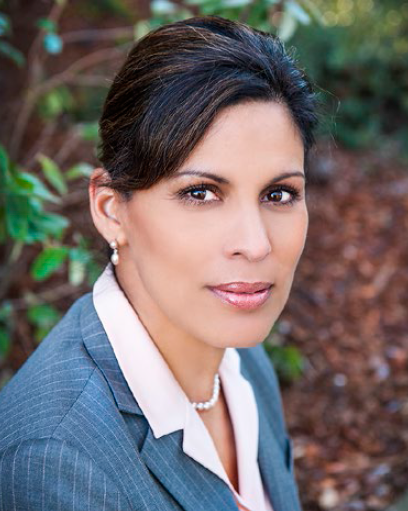 Alice Perez | Alice Perez is a Director with AT&T External Affairs. In her role she is the direct liaison for local government, and the non-profit community in the 11 counties she covers. She is the primary point of contact for supporting and responding to public safety requests and coordinating emergency response efforts and for the implementation of corporate strategic policies and programs pertaining to the company’s regulatory and legislative initiative |
Session 10 (June 2022): Broadband Equity in Education
In this session we discussed how our local education systems has been using broadband to manage through Covid and the efforts they are making to assist students get their needs met now and in the future. We had some discussion about how Yolo County is preparing to access state and federal grant funds for broadband infrastructure.
Watch the video recording:
Agenda
- Introductions
- The status of broadband during COVID and beyond for education
- How incoming broadband funding impacts the future of education
- Community discussion
Panelists
- Garth Lewis, Superintendent of Schools for Yolo County
- Carl Fahle, Director of Information Technology for the Yolo County Office of Education
- Raena Lavelle, Technology Coordinator, Winters Joint Unified School District.
- Brian Briggs, Director of Technology, Washington Unified School District (West Sacramento)
 Garth Lewis | Garth Lewis serves as the Superintendent of Schools for Yolo County. He was elected to this position in 2018. Over the course of his two-decade career in K-12 education, Superintendent Lewis has served as a para-educator, teacher, site and district administrator, and assistant superintendent. His collaborative work supports each of the five Yolo school districts and other key agencies that serve youth and families throughout Yolo County. He believes access to a high-quality public education is a significant factor in improving life outcomes for all children. |
 Carl Fahle | Carl Fahle is the Director of Information Technology for the Yolo County Office of Education. He is an experienced technology and educational services executive, software developer, and instructional leader with a background in primary/secondary education. He is skilled in complex IT systems management and instructional technology integration. Prior to working in Yolo County, he previously worked in IT director roles for the South San Francisco and San Juan Unified school districts. |
 Raena Lavelle | Raena Lavelle has been in public education for 15 years and currently serves as the Coordinator of Educational and Informational Technology Services for Winters Joint Unified School District. Raena has worked in both large urban and small rural districts, in roles such as curriculum developer, activities director, high school math and engineering teacher, and site technology specialist. She believes that every student deserves the opportunity to be successful in an educational environment based on respect and support, where a student’s strengths are valued and they are provided with the tools, knowledge, and skills to thrive in and out of the classroom. |
 Brian Briggs | Brian Briggs is the Director of Technology for the Washington Unified School District in West Sacramento. Brian has over 25 years in education which all started teaching Kindergarten in North Highlands. Starting as a teacher he advanced to Educational Technology and in the last 8 year to Director of Technology. With all efforts and initiatives he has been involved in, the main focus has been on what and how it will benefit all students. Brian is also the current board president for the CUE organization. |
Session 11 (Aug 2022): Metrics of Equity
This session focused on how we measure broadband progress toward success and equity. We touched on how different community cohorts may need different support and how there needs to be an equitable approach to ensuring that small ag operators have the same opportunities as larger players.
Watch the video recording:
Agenda
- Introductions
- Why discuss metrics / summary of 2021 discussion
- Metrics of Equity / Success (generally, agricultural)
- Community discussion about metrics - what measures should we use? what barriers might limit access to the data?
Panelists
We were pleased to have Robert Tse, Senior Policy Advisor on Broadband in the USDA Rural Utilities Service, John B. Horrigan, PhD, Senior Fellow at the Technology Policy Institute, and Jory Wolf, VP Digital Innovation with Magellan Broadband.
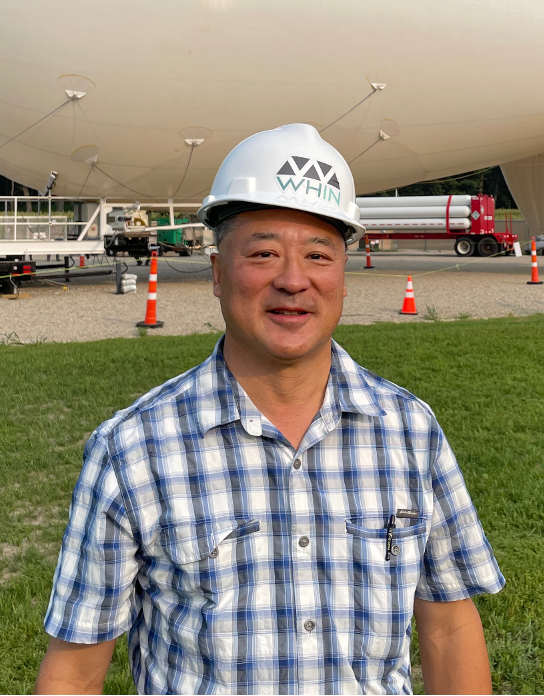 Robert Tse | Robert Tse is a recognized expert on rural economy and broadband in California, currently serving as senior policy advisor on broadband at USDA, Rural Utilities Service. During 30 years of public service, his focus areas have included agriculture technology, health-food-agriculture system, goods movement, international trade, water, and energy. He created the first Apps for Ag Hackathons. As USDA lead for President Obama’s Strong Cities-Strong Communities initiative in Fresno, he developed a high-speed broadband and agriculture technology strategy. He previously served as the highest ranking California trade official, Deputy Director for International Trade, representing California’s agricultural priorities on the Governor’s trade missions. Robert Tse holds a J.D. from Boston College Law School, an M.S. Agricultural Economics from Purdue University, and a B.A. American History from Brown University. He has received two USDA Secretary’s Honor Awards. |
 John B. Horrigan, PhD | John B. Horrigan is Senior Fellow at the Benton Institute on Broadband & Society, with a focus on technology adoption and digital inclusion. Horrigan has served as an Associate Director for Research at the Pew Research Center and Senior Fellow at the Technology Policy Institute. During the Obama Administration, Horrigan was part the leadership team at the Federal Communications Commission for the development of the National Broadband Plan (NBP). For the NBP, Horrigan was responsible for the plan’s recommendations on broadband adoption. Horrigan has a Ph.D. in public policy from the University of Texas at Austin and his undergraduate degree from the University of Virginia. |
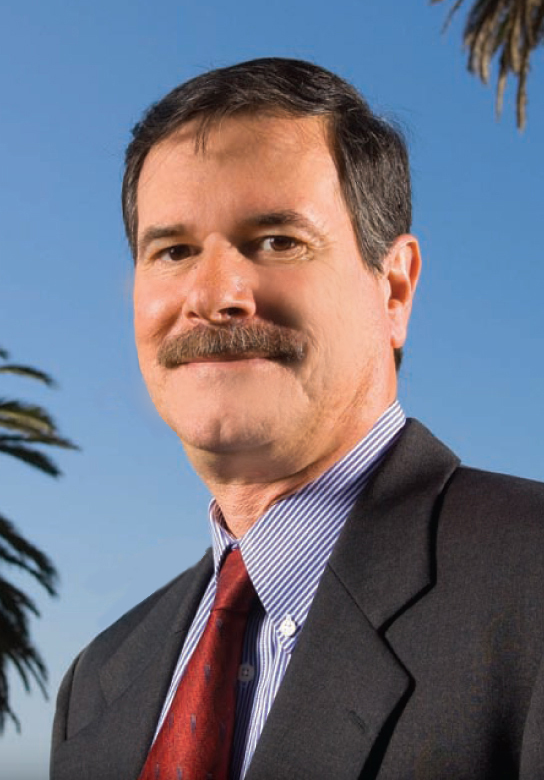 Jory Wolf | Jory Wolf has over 35 years of experience in Information Technology, including broadband, FTTH and Smart City initiatives. Jory and his teams have received over 50 awards for information technology projects during his career and in 2012 he received the CIO Lifetime Achievement Award from the Los Angeles Business Journal. Since joining Magellan Broadband in July 2016, Jory has led teams that have worked on 60+ government projects in broadband master planning, wireless strategic planning, 5G small cell policies, dig once policies, smart city, design engineering and construction management. |
Thank you
To all of our partners, sponsors and participants in these conversations we want to offer a very sincere thank you for being part of this effort and moving this very important conversation forward.
Thank you
